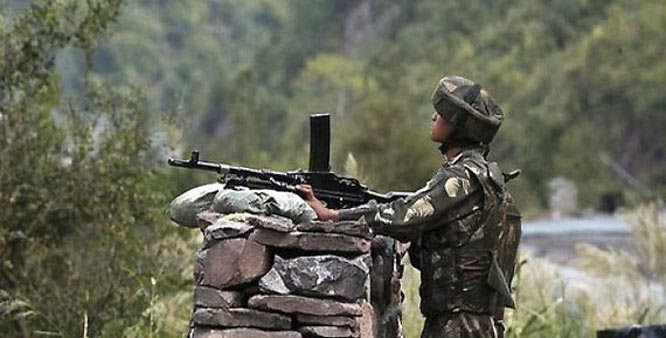A member of security agencies according to this interpretation remains protected as long as his action concerns the security of the state. If he on the other hand indulges in rape or extra-judicial killing of innocents irrespective of their none-involvement in any sort of security related activity.
Such actions ought not to be protected — this was the plea taken by Central Bureau of Investigation (CBI) when it approached Supreme Court on Pathribal killings.
The plea was simple, since the action of the security men was not anyhow related to security of the state they didn’t enjoy the protection of AFSPA should be tried by an ordinary criminal court.
The Supreme Court of India didn’t accept plea of the CBI and gave the desecration to army to deal with the act of the deviant soldiers through court martial. Army while referring the case to court martial gave the impression that its adjudicating mechanism is prompt and sufficient to take care of abuses of human rights by the soldiers.
The court-martial remains a procedure associated with army. Expecting justice from it remains an illusion as no institution or individual can be judge of his own cause, according to the basic principles of natural justice.
What was expected, turned out to be true when army recently closed the court martial against its soldiers on the pretext of insufficiency of evidence.
Decision of the army to close the court martial has invoked widespread condemnation across Kashmir and beyond.
While in Kashmir those who condemned the decision included even members of leaders of pro-Indian parties as well. Internationally, human rights groups like Amnesty International also expressed dismay on the outcome of the so-called court martial.
People genuinely ask if this can be the fate of a procedure to which CBI was a party, what can be the outcome of those complaints which are single-handedly followed by the victims of the Human Rights abuses.
Another equally important issue that is raised pertains to the level of defiance depicted by army in winding up the proceedings of an authentic and genuine case of Human Rights abuses.
CBI got involved in the case only after Pandiyan Commission established by the state government had acknowledged the abuses of the human rights and innocence of those killed.
The case was not an ordinary incident. It was an incident that occurred during the visit of the U.S. president, Bill Clinton to India. The incident attracted a lot of media coverage across the globe and even Bill Clinton conceded that killings in vicinity of Islamabad town had occurred because of his visit.
As a damage controlling exercise, it is now conveyed that the findings of the court martial can be challenged.
But the fact remains that there is no provision of appeal against the finding and sentence of a court martial. The Air Force Act, Section 161, states that an individual who considers wronged by the order of a court martial may present a petition to the convening authority before the confirmation of the sentence. After confirmation, the petition may be submitted to the Chief of the Air Staff or the Central government.
This remedy is illusory. There is no right to appeal against the order of the court martial. Article 136(2) of the Constitution stipulates that the Supreme Court Article 227 (4) for High Courts can’t give special leave to appeal against any judgment determination or sentence of a military court or tribunal.
The Supreme Court, in the case of Union of India v. Himmat Singh Chahar 1994 (4) SCC 521, has made it clear that the High Court under Article 226 of the Constitution can exercise the power of judicial review over the court martial in a limited way only in cases where there has been infraction of any mandatory provisions of the Act which has caused gross miscarriage of justice; or there has been violation of principles of natural justice; or there has been a lack of jurisdiction.
It is obvious, that the power of judicial review under Articles 32 and 226 in context of military personnel is limited.
Widespread disillusion with the remedial mechanism exiting under Indian legal system has made people to raise voices for an international war crime tribunal. A demand that has been consistently made in the past and again reaffirmed by several Kashmiri leaders after winding up of the court martial proceedings in Pathribal case.
(Dr Shiekh Showkat Hussain is a expert of law and teaches at the Central University, Kashmir.)


